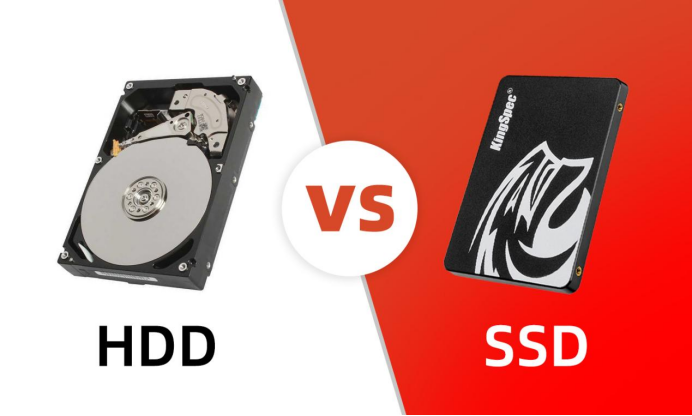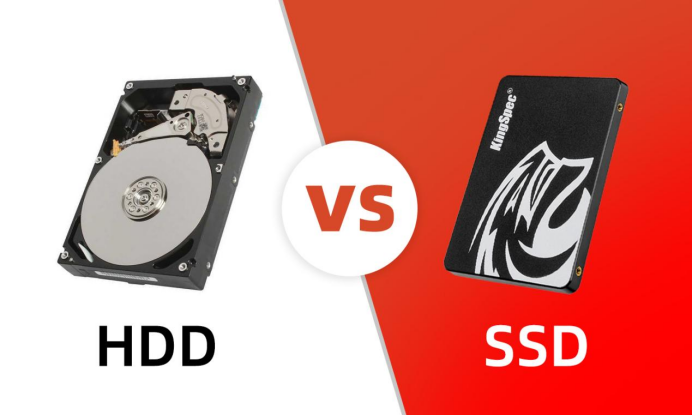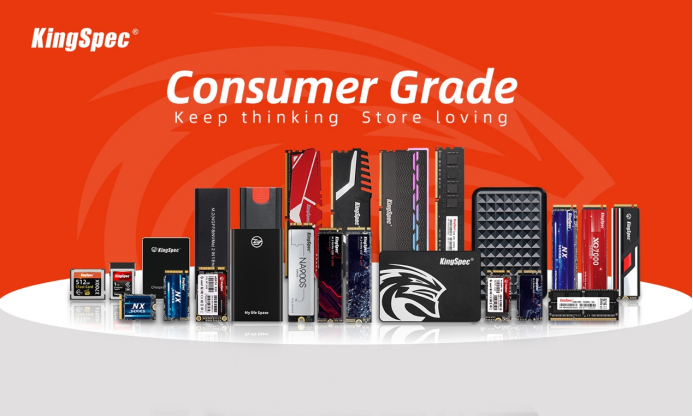News
Site Editor
 Site
https://kingspec.usa02.wondercdn.com/uploads/image/6307135a29359.png
Let's explore the key differences between SSDs and HDDs and understand why SSDs are often considered the future of storage with their excellence in various aspects.
Site
https://kingspec.usa02.wondercdn.com/uploads/image/6307135a29359.png
Let's explore the key differences between SSDs and HDDs and understand why SSDs are often considered the future of storage with their excellence in various aspects.
SSDs vs HDDs : The Battle of Storage Technologies
Views: 11764
Author: Site Editor
Publish Time: 2023-08-30
Origin: Site
Solid State Drives (SSDs) and Hard Disk Drives (HDDs) are two distinct storage technologies offering different benefits and trade-offs. While both serve the purpose of storing data, they do so use fundamentally different mechanisms. Let's explore the key differences between SSDs and HDDs and understand why SSDs are often considered the future of storage with their excellence in various aspects.

Performance and Interface
Regarding performance, SSDs provide significantly higher data transfer speeds than HDDs. This speed advantage is due to the absence of moving parts and the use of NAND flash memory. Sequential read and write speeds of SSDs can range from 550 to 10000 MB/s depending on different form factors. HDDs are limited by the physical spinning of the platters and the read/write head movement. This results in slower sequential read and write speeds ranging from 80 to 160MB/s.When dealing with large files such as videos, fast sequential speed enables rapid file copying and smoother performance.
One of the most crucial performance indicators for solid-state drives (SSDs) is 4K random write performance. A significant portion of storage activities involves 4K random writes, which measures the drive's performance when dealing with smaller data write operations.
Comparing SSDs and Hard Disk Drives (HDDs) regarding 4K random write performance highlights a substantial difference. SSDs excel in this aspect due to their lack of moving parts and ability to write data directly to memory cells electronically. This results in significantly faster 4K random write speeds and improved responsiveness. In contrast, HDDs struggle with 4K random writes due to their mechanical nature. The read/write head needs to physically move to the correct location on the spinning disk, leading to slower performance and increased latency in handling small data write operations. As a result, SSDs offer a considerable advantage in scenarios involving frequent and rapid small data write activities, contributing to faster file operations and a more responsive computing experience. That's why KingSpec designed its SSD lineup with a strong focus on random performance, providing users with outstanding random performance of up to 1400,000 IOPS.
The interface of a storage device serves as the crucial link between the storage medium and the rest of the computing system. It determines how data is exchanged, accessed, and managed. In the context of SSDs and HDDs, the interface plays a pivotal role in shaping their performance and compatibility. SSDs employ interfaces such as SATA, PCIe (NVMe), and M.2 to establish high-speed connections with motherboards. These interfaces enable the lightning-fast transfer of data, with NVMe and PCIe offering exceptional speed and reduced latency. On the other hand, HDDs primarily utilize SATA interfaces, which, although slower in comparison, provide backward compatibility with a wide range of systems. The choice of interface directly influences the speed, responsiveness, and overall efficiency of these storage technologies, underscoring its critical role in shaping the future of storage solutions.
Size and Weight Comparison
In terms of physical properties, SSD maintains a clear advantage. SSDs are smaller and lighter than their HDD counterparts, making them ideal for laptops and devices with limited space. Its compact size not only contributes to portability but also overall system efficiency. In contrast, HDDs are larger and heavier due to their mechanical components, limiting their integration into sleek and compact devices.
Structural Differences and Durability
One big difference between SSDs and HDDs is their manufacturing structure. SSDs rely on flash memory chips and have no moving parts. This structural advantage not only enhances their performance but also makes them more durable. SSDs are shock resistant and can withstand shocks that traditional HDDs cannot. SSDs are indeed the wise choice, given their remarkable durability and resistance to external forces. An SSD's ability to withstand vibrations (20G) is a staggering 40 times greater than that of an HDD (0.5G). Furthermore, SSDs can endure impacts of up to 1500G, a significant increase over traditional HDDs, which can withstand impacts of no more than 350G. These superior durability features make SSDs a compelling option for individuals seeking robust and reliable storage solutions.
Power Consumption and Noise
When it comes to energy efficiency, SSDs once again lead the charge. Compared to hard disks, they have no mechanical parts and therefore consume less power. Not only does this extend your laptop's battery life, but it also reduces your overall carbon footprint. Additionally, due to the non-mechanical nature of SSDs, they operate virtually silently. However, HDDs generate noise with their spinning platters and moving parts, which can be considered in noise-sensitive environments.
Diverse Applications
Due to their larger capacity and cost-effectiveness, HDDs are primarily used for data backup and server storage that require significant storage space. However, with the rapid advancement of information technology, especially in terms of portability, speed, and reliability, SSDs are gradually becoming mainstream. Nowadays, SSDs are not only the preferred choice for high-performance tasks like graphic design, video editing, and gaming, but they are also gaining popularity in everyday mainstream data storage applications such as operating system installations, file storage, and software execution. SSDs are compatible with various devices, including laptops, desktops, gaming consoles (PS5, Steam Deck, ROG), all-in-one systems, and many storage devices. In the increasing data and information era, portable SSDs have also become common in people's daily lives.
Embracing the Storage Revolution with KingSpec
In this storage battle, it's clear that SSDs hold the upper hand in terms of Performance, durability, power efficiency, and compatibility with different devices, which are critical considerations as we move toward a future dominated by SSDs in storage. Established in 2007, KingSpec has garnered 16 years of experience in the storage industry. We have provided customized solutions to various industries, including Data Centers, Industrial Automation, Surveillance, Transportation, Medical, Financial, and IoT. With a steadfast commitment to innovation and quality, KingSpec has introduced high-quality SSDs with a range of interfaces, meeting the diverse requirements of modern users. For more information, please feel free to contact info@kingspec.com

























